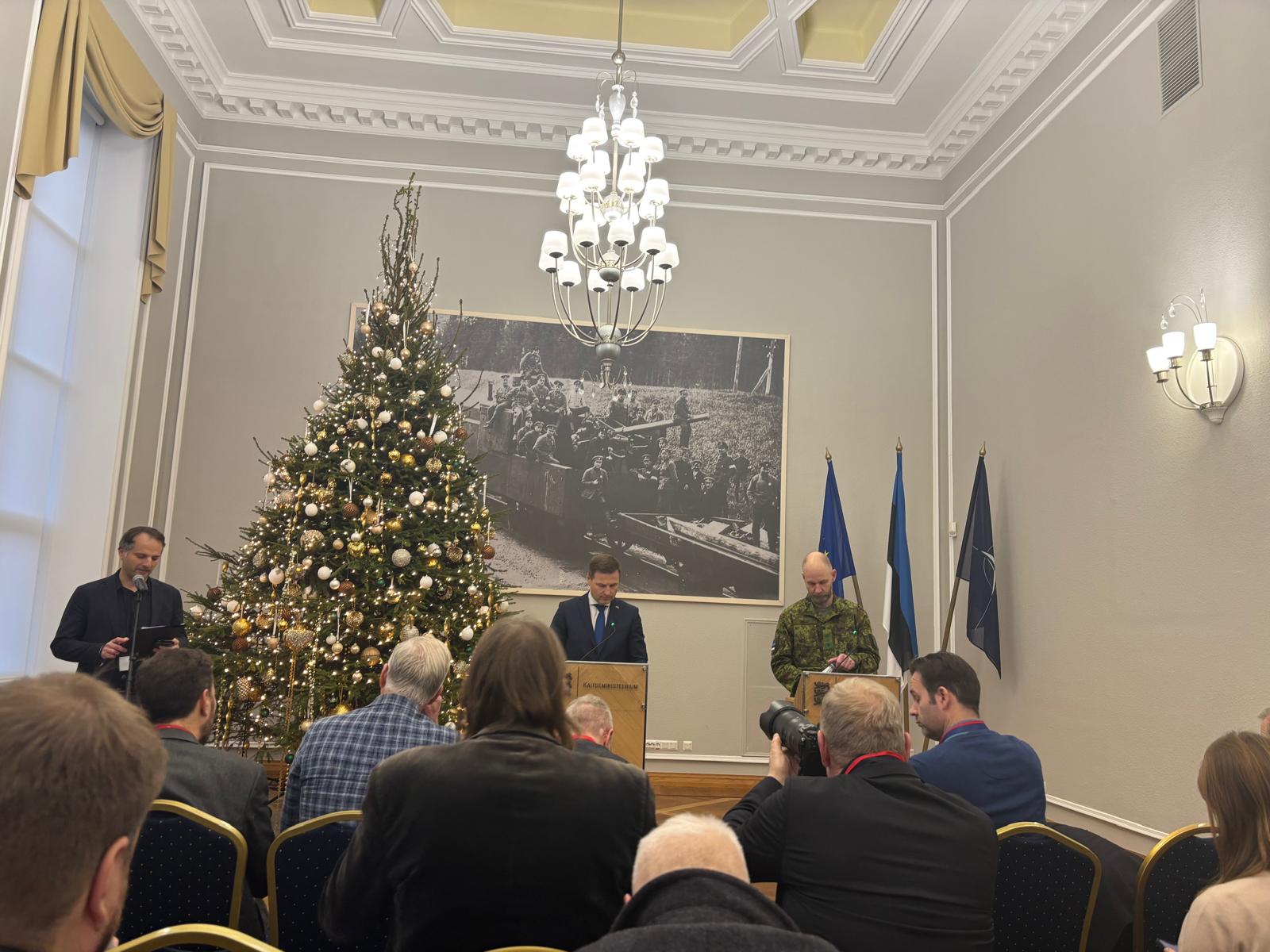Sir Keir Starmer has said allies must double down on support for Ukraine, as pressure grows on the UK to boost defence spending.
It comes just hours after Estonia’s defence minister Hanno Pevkur issued a stark warning to allies that spending 2 per cent of GDP on defence is simply not enough.
He urged allies to act immediately to boost funding, suggesting one possible method would be to introduce a security tax – something Estonia will be implementing from the new year.
The prime minister is meeting with leaders from the 10 member states of the Joint Expeditionary Force (JEF) – a UK-led European defence alliance – in Tallinn on Monday and Tuesday when defence spending is expected to be the main topic of discussion.
Speaking at a panel discussion at the opening of the summit, Sir Keir warned that the West cannot allow Russia to benefit from its actions in Ukraine.
He said: “There will be discussions in the next 24 hours, as leaders are here in Tallinn for the JEF meeting. It’s important that we double down on support for Ukraine.
“It’s really important that we see this as not just a Ukrainian sovereignty issue but as a much wider conflict. We cannot allow Russia to gain from the aggression we’ve seen throughout this conflict.”
While ministers have pledged to boost UK defence spending from its current point – at just above 2 per cent – to 2.5 per cent, it is not yet clear when or how this target will be achieved.
Mr Pevkur said the topic of defence spending will be the main topic of discussion at the Tallinn summit, telling The Independent: “My main message is that paying 2 per cent of GDP to secure the peace is not very much.
“We don’t have time to wait to go up to 3 per cent or even to 2.5 per cent. We need to do it immediately. We had to increase our taxes, so we are introducing a security tax here in Estonia from January next year.”
He added: “We urge the other countries to do the same, we urge other countries to boost their defence spending.”
A number of Nato member states do not yet meet the 2 per cent of GDP threshold for defence spending. Meanwhile, there are also concerns over the failure of Sir Keir to specify a timescale in relation to his pledge to increase UK spending to 2.5 per cent.
While Mr Pevkur acknowledged it is “up to each country how they find their best option to secure finances for defence”, he said he would be very clear at the summit that “2 per cent is not enough, it should be at least be 5 per cent”.
Estonia is on track to spend 3.4 per cent of its GDP on defence in 2024. The country is looking to increase this to 3.7 per cent by 2026, Mr Pevkur said.
Speaking at the summit after Mr Pevkur’s remarks, Sir Keir acknowledged that “not many people in the UK are keen on their taxes going up again and they are right about that”. But he added that the “first duty of government is obviously national security to keep our people safe”.
It comes amid growing concern over Britain’s preparedness for a conflict and the state of its armed forces.
In a foreboding speech in Brussels last week, Nato secretary general Mark Rutte warned the West is not ready to deal with the threat of war from Russia, declaring it is “time to shift to a wartime mindset and turbocharge our defence production”.

His intervention came alongside warnings from former defence secretary Ben Wallace and Labour peer Admiral Lord West that a failure to prioritise defence would be a grave error by the prime minister.
Asked about Mr Rutte’s comments, Sir Keir said: “Public finances are not in a good place in the UK. We inherited a failed economy and failed public services, that’s the first double whammy in the UK – normally you have one or the other, not both.
“And not many people in the UK are keen on their taxes going up again and they are right about that.
“Nor are they very keen on having their public services cut. So there’s no point pretending that this isn’t a real debate.
“But the first duty of government is obviously national security, to keep our people safe. And that is why defence spending, Nato, working with our allies and JEF is so important.”
Sir Keir also warned of the threat posed by hybrid attacks from Russia, saying that Nato must be “fully alive to the threats” from alternative forms of warfare.
“It is a mistake with Russia, but also with others, to think that all the conflict is the traditional tanks and armoury conflict. It most certainly isn’t any more,” he warned.
It comes after Estonian border officials accused Russia of stealing border infrastructure and flying conspicuous surveillance equipment into Nato airspace.
The Ministry of Defence has been contacted for comment.







